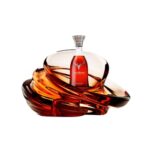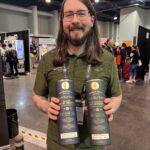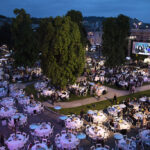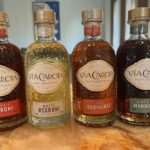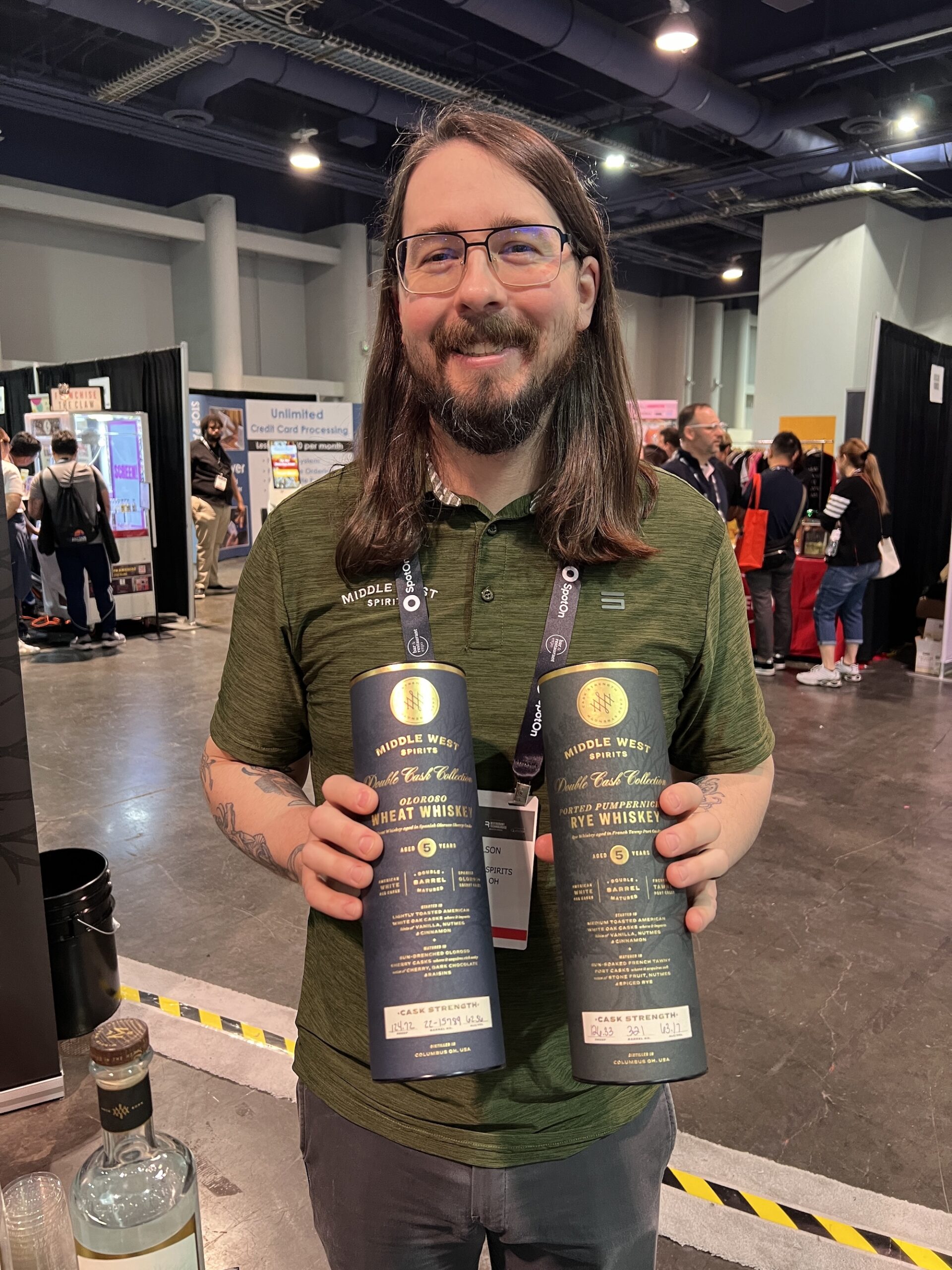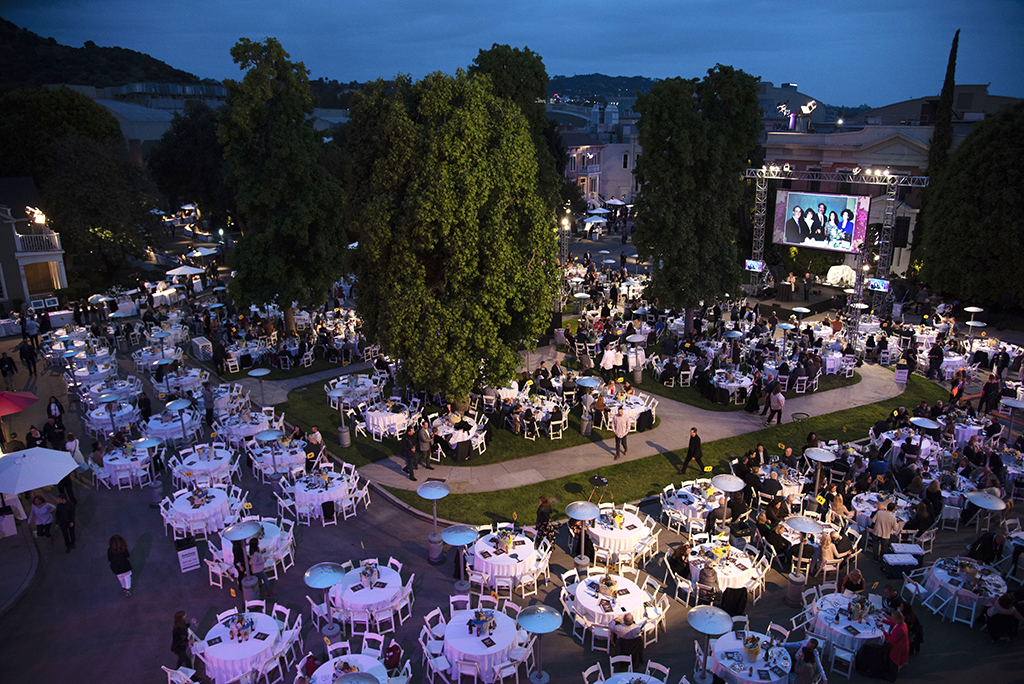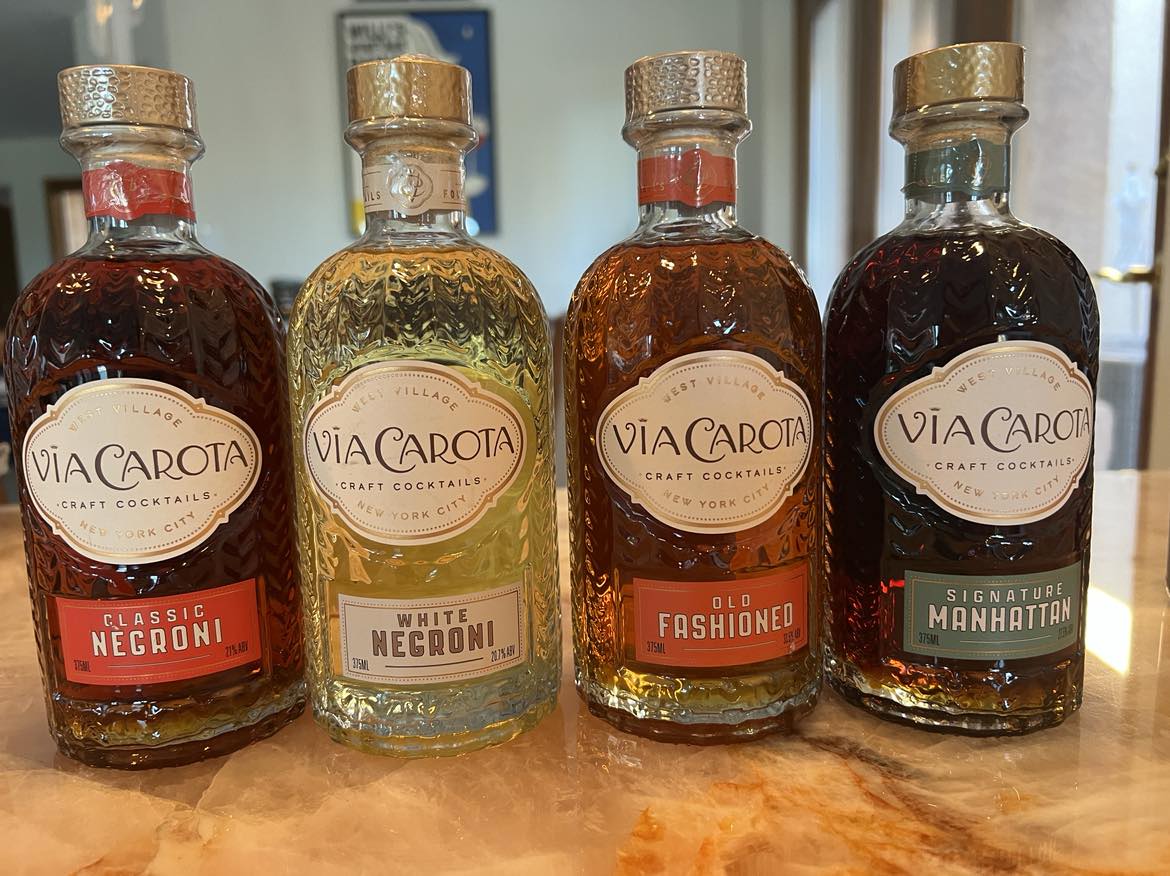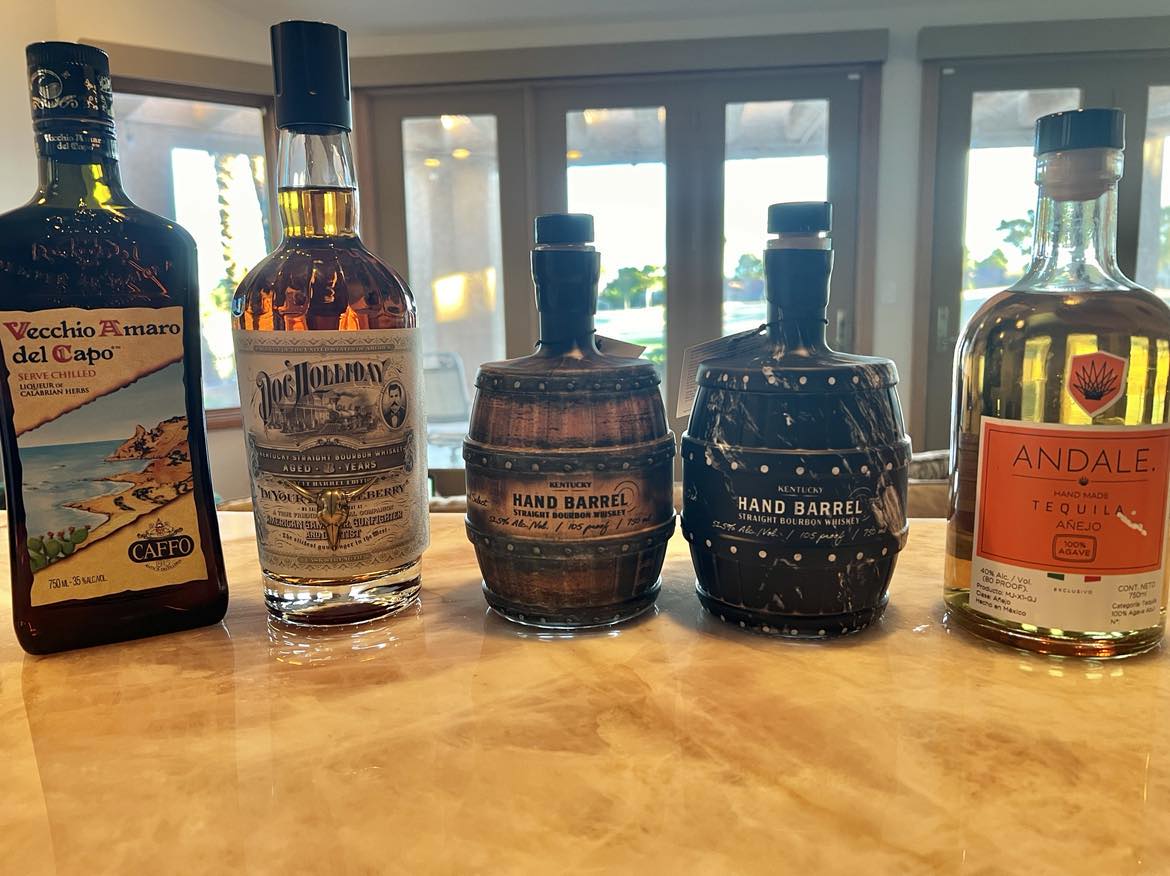I’ve sampled wines from Argentina before, and organic wines from the area as well, so when I received bottles of new 2021 vintages of a Chardonnay, Cabernet Sauvignon and Malbec all from organic fruit found in the Uco Valley I looked forward to trying them. The winery, Domaine Bousquet, sent some information and I found more details on the wines from their website that I’ve shared here. My tasting notes are also below.
From the Winery
Domaine Bousquet’s 100% estate-grown/bottled wines from the winery’s Reserve line is the foundation on which the Domaine Bousquet winery was built. Domaine Bousquet’s 667 acres of vineyard has been certified organic from the get-go, and now twenty-five years on…Domaine Bousquet’s Reserve wines hail from estate vineyards planted at elevations of 4,000 feet and up and offer older vines, great body and concentration, structured tannin in the reds, a deep flavor and increased aging capacity. All three enjoy nationwide distribution (including Southern in OH, and Burke Beverage in IL)
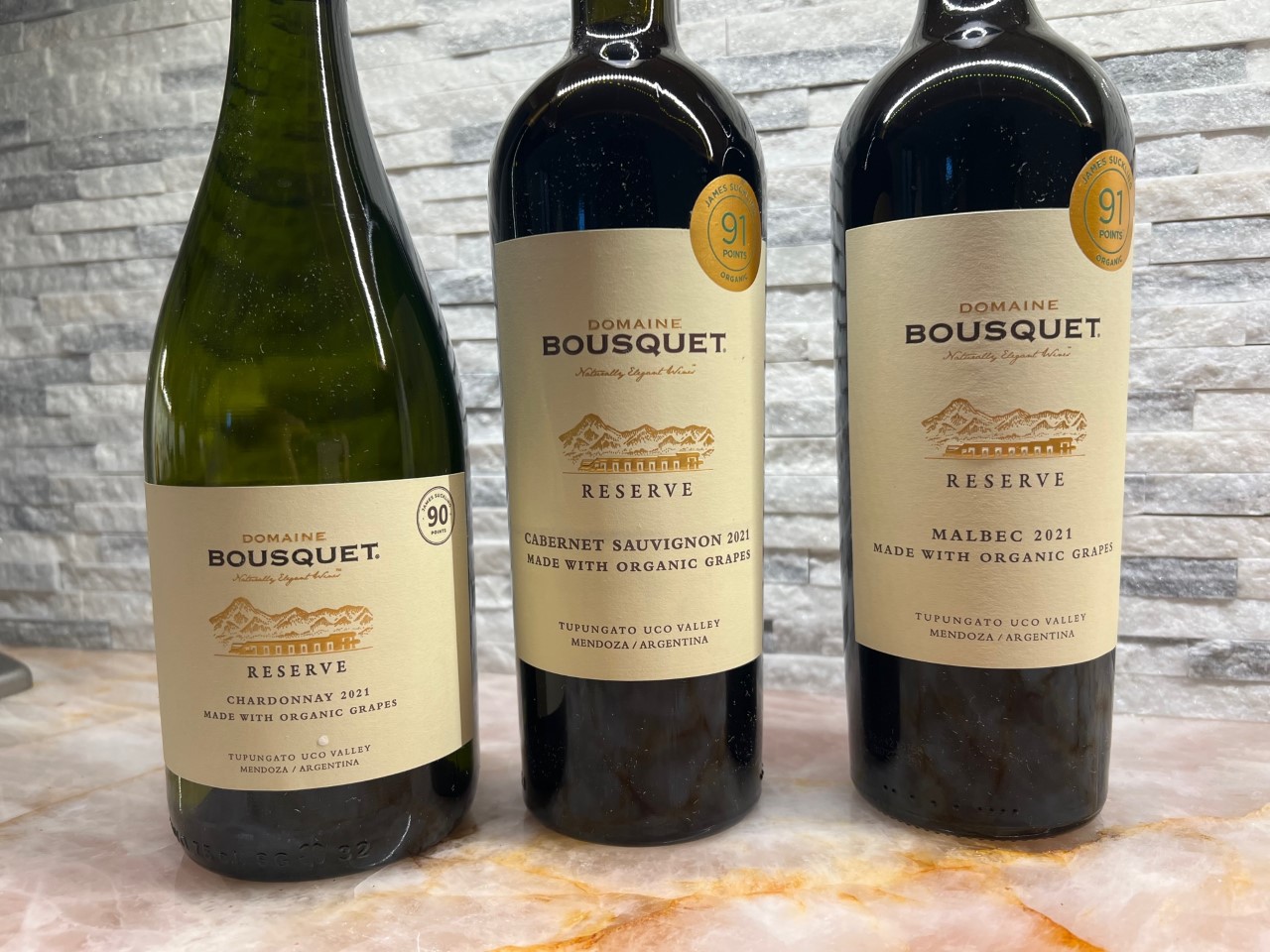
Tasting Notes
Domaine Bousquet Reserve Certified Organic Chardonnay 2021 / SRP $18
From tech sheet: 100% Chardonnay, 13% alcohol, made with “purchased organic fruit from the Uco Valley in the high Andean foothills”, unoaked, sandy loam soil. 90 points and Best Value award from Wine Spectator.
EB: Sparkly gold in the glass, enticing. Sweet Meyer lemon, pineapple chunks, Mandarin orange, cold wet stones, white pepper all on the nose while the flavors included bruised yellow Delicious apple, lemon-lime hard candy, with both fresh citrus and tropical fruits, a nice mouthfeel, mild acidity and great viscosity.
Domaine Bousquet Reserve Certified Organic Cabernet Sauvignon 2021 / SRP $18
From tech sheet: 100% Cabernet Sauvignon, 14.5% alcohol, made with “purchased organic fruit from the Uco Valley in the high Andean foothills”, unoaked, gravel and sandy loam soil. Best Value award from Wine Spectator. (The bottle also had a gold sticker on it that read 91 points from James Suckling.)
EB: Crushed blueberry, ripe blackberry and somewhat sweet plum fruits on the nose, followed by wet rich earth, tree bark, grilled mushroom, black licorice and my spice rack – when my husband Eddie opens up everything to season a steak. The taste reminded me of those same dark fruits I found in the aromas, as well as a hint of grilled green bell peppers, a lot of spiciness, some sweetness and gripping tannins. Considering how young this Cab is I found it very approachable and drinkable now.
Domaine Bousquet Reserve Certified Organic Malbec 2021 / SRP $18
From tech sheet: 100% Malbec, 14% alcohol, made with “purchased organic fruit from the Uco Valley in the high Andean foothills”, unoaked, sandy soil. 90 points from Wine Spectator. (The bottle also had a gold sticker on it that read 91 points from James Suckling.)
EB: Very dark purple opaque color, with notes of earth, blue to black fruit, black pepper, tobacco, very dark chocolate and espresso on the nose. Tasting the wine I was met with juicy dark fruits, a good mouthfeel, lots of spice, tannins and a lingering finish that held a strong balance of both the fruit and spice.
More From the Winery
Domaine Bousquet: Transformation + Sustainability, High-altitude Terroir, Organic Fruit and a French-Argentine Profile
A 1990 vacation in Argentina was all it took. For third-generation winemaker Jean Bousquet (Boo-SKAY), it was love at first sight. The object of the Frenchman’s desire: the Gualtallary Valley, a scenic, remote, arid terrain high in the Tupungato district of the Uco Valley in Argentina’s Mendoza region, close to the border with Chile. Here, where the condors fly and not a vine in sight, Bousquet discovered his dream terroir, an ideal location in which to nurture organically grown wines.
With altitudes ranging up to 5,249 feet, Gualtallary occupies the highest extremes of Mendoza’s viticultural limits. Fast-forward to the present and wine cognoscenti recognize it as the source of some of Mendoza’s finest wines. The same could not be said when Jean Bousquet first set eyes on this cool-climate locale. Back then, it was virgin territory: tracts of semi-desert, nothing planted, no water above ground, no electricity, and a single dirt track by way of access. Locals dismissed the area as too cold for growing grapes. Bousquet, on the other hand, reckoned he’d found the perfect blend between his French homeland (high acidity, cool climate) and the New World (sunny, with a potential for relatively fruit-forward wines). Another distinct plus: land prices at the time were approximately 1/25th of those for property in more established districts of Mendoza.
Undeterred by the challenges, Bousquet returned to France and, between visits to Argentina, set about divesting himself, bit by bit, of virtually everything he owned, including the family winery and vineyards in Pennautier, near Carcassonne in Southwest France.
“You know you’re making the biggest mistake of your life, don’t you?” said the real estate broker, as Bousquet inked a contract in 1997 to buy just shy of 1,000 acres in this beautiful, but desolate location. “What are you doing?” teased daughter Anne, an economist by profession, from her home in Massachusetts: “Buying a beach? All sand, no sea?” “Anne: they (the locals) just don’t get it,” was Bousquet’s response.
Bousquet was neither the first nor the only wine producer to have his interest piqued by the Gualtallary Valley. But what sets him apart is that he succeeded where several other better financed, well-known names notably did not. What Bousquet seized upon, but others failed to grasp, was the singular importance of water. Water is hard to come by in Gualtallary. Technically, the area is desert. But Bousquet had done his homework, so his first task in 1998 was to dig a well – all 495 feet of it. Two years in the making, its completion was followed by the planting of vines. Other investors in the region, meantime, watched their hopes fade, chiefly due to an inability to extract water or secure water rights.
As and when the need arose, Bousquet would sell off portions of his initial 988 acres, retaining just 173 acres by the time he released his first vintage in 2005. Bottle by bottle, money was raised to buy a vat or equipment. Today, Domaine Bousquet is housed in a striking modern winery, complete with a hospitality area and restaurant, and the property accounts for 667 acres planted under vine.
Bousquet’s daughter, economist Anne Bousquet, and her husband Labid al Ameri, a trader with Fidelity in Boston, found themselves increasingly drawn to the cause, and the opportunity it offered to put their shared philosophy on sustainability to the test. After a 2002 visit, the couple began to invest in Domain Bousquet. A devaluation of the Argentine currency rendered land prices cheap and Argentine exports competitive. In 2005, al Ameri joined his father-in-law full time, helping to build the winery. Anne continued her work as an economist before joining the company in 2008. In 2009, the couple moved to Tupungato full-time, assuming full ownership in 2011.
For Anne and Labid, sustainability encompasses more than organic fruit or a reduced carbon footprint. It includes economic sustainability for the surrounding community. When the couple set up home in Tupungato, the area was a rural backwater (still is), abandoned by a failing central government. That necessitated building an infrastructure from scratch. The Bousquets joined an alliance of local wineries in funding construction of a new road providing better access for employees, deliveries and a small, but growing number of tourists. The couple also immersed themselves in training a workforce new to winegrowing and office work. Every detail had to be thought through, from transport for employees who didn’t own a car to micro-loans for continuing education. Today, success stories abound. Domaine Bousquet’s head of purchasing, for example, started out as an 18-year-old high school graduate on the bottling line. The wine industry has transformed the Tupungato economy, but Domaine Bousquet was there first, and Anne and Labid count this among their proudest achievements.
With the U.S. today Domaine Bousquet’s primary market, Anne and Labid now live in Miami, with their daughter Eva., and alternate in spending one week every month at the winery in Tupungato.
Eve Bushman has a Level Two Intermediate Certification from the Wine and Spirits Education Trust (WSET), a “certification in the first globally-recognized course” as an American Wine Specialist ® from the North American Sommelier Association (NASA), Level 1 Sake Award from WSET, was the subject of a 60-minute Wine Immersion video (over 16k views), authored “Wine Etiquette for Everyone” and has served as a judge for the Proof Awards, Cellarmasters, LA Wine Competition, Long Beach Grand Cru and the Global Wine Awards. You can email Eve@EveWine101.com to ask a question about wine or spirits.
